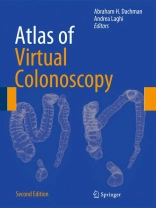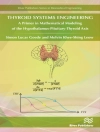Atlas of Virtual Colonoscopy thoroughly revises and updates Abraham Dachman’s bestselling first edition. Joined in this edition by co-editor Andrea Laghi, Dr. Dachman has expanded the focus of the text to cover fundamental topics of this rapidly evolving technology, including the history of virtual colonoscopy, a review of clinical trial data from throughout the world, and a presentation of clinical background information. Also included are chapters covering patient preparation and tagging, performing and reporting virtual colonoscopy, viewing methods, MR colonography, and computer aided detection. The second part of the text presents an atlas of high-resolution images with detailed explanations of teaching points, covering normal anatomy; sessile, pedunculated, diminutive and flat lesions; masses; stool and diverticula; and common pitfalls. Atlas of Virtual Colonoscopy is a valuable resource for all radiologists and gastroenterologists interested in learning the fundamentals of this exciting technique.
Cuprins
Virtual Colonoscopy: From concept to implementation.- Global implementation of CTC.- Epidemiology and Screening of Colorectal Cancer.- Implementation and clinical trials in the USA.- Clinical Trials: Europe .- Patient Preparation and Tagging.- Performing and Reporting.- Viewing Methods.- The Controversy Over Flat Lesions.- MR Colonography.- Extracolonic Findings.- Computer-Aided Detection.- Normal Anatomy.- Sessile Polyps.- Pedunculated Polyps.- Diminutive Polyps.- Flat Lesions.- Stool, Diverticulosis.- Masses.- Pitfalls and Miscellaneous.
Despre autor
Abraham H. Dachman, MD, is a nationally known specialist in abdominal imaging. He uses X-rays and advanced imaging equipment to visualize the structure and function of abdominal organs. This information is used to help diagnose disease, to assist in surgical planning, and to determine if treatments are effective. Dr. Dachman is known for his expertise in using computed tomography (CT scans) to create 3-D images of abdominal structures. This 3-D technology gives physicians an additional, valuable tool to better visualize tissue without performing an invasive procedure. He is a leading authority on virtual colonoscopy–using noninvasive CT technology to detect polyps and masses in the colon. In addition, he applies 3-D techniques to aid in the detection and staging of pancreatic cancer, and in the evaluation of tumor response to chemotherapy. An active researcher, Dr. Dachman has published several journal articles, book chapters, and books, including the first text on virtual colonoscopy, ‘The Atlas of Virtual Colonoscopy.’ In addition, he shares his knowledge about this emerging field through courses for radiologists who want to learn how to read virtual colonoscopy studies. He also has given presentations at dozens of scientific meetings around the United States.
Dr. Andrea Laghi is a renowned professor at the University of Rome, and the author of various journal articles in the field of virtual colonoscopy.












